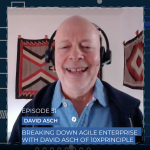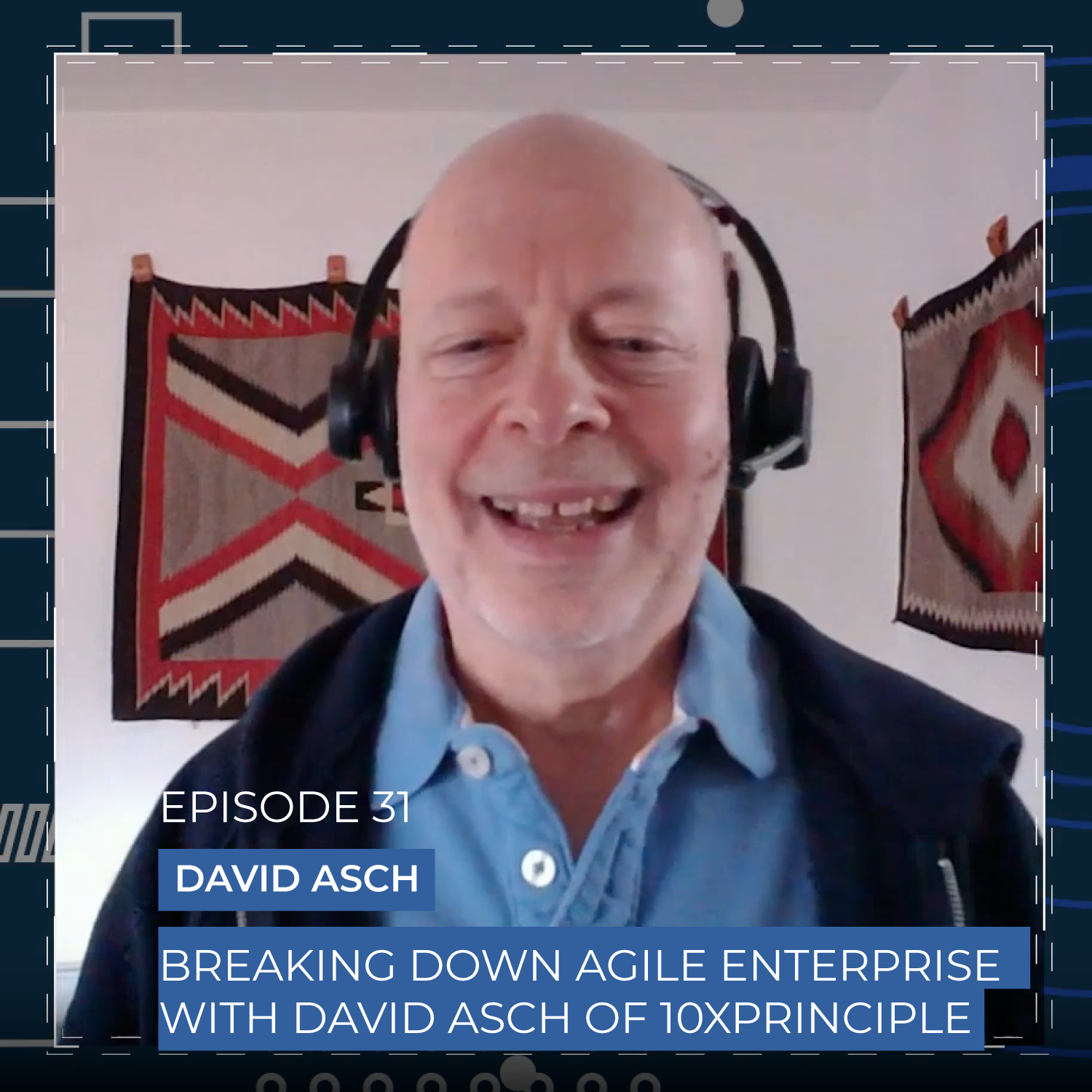
Agile is more than just a buzzword. It’s an intuitive methodology that offers practical solutions to enterprises by simply breaking a big thing into smaller, more manageable chunks. Today on the Scaling Tech podcast, Arin welcomes David Asch to take a deep dive into agile methods.
David is currently the Founder of 10xPrinciples, a consulting firm helping technology companies navigate the transition from startup to mid-stage. He produced robust, Enterprise Software-as-a-Service, cloud-based products in all his managerial positions throughout his 36-year career. He also introduced Agile philosophy and methodologies to each of his companies, enabling his teams to meet their goals. During this time of rapid growth and change, teams typically find that the “wearing many hats” behavior from their startup days is no longer the best approach to honoring commitments, David helps these companies weave Agile practices into the fabric of their cultures.
In this episode of the Scaling Tech podcast, we discuss the key agile principles, how to apply them in practice (in and outside of software development teams), how to manage sales in smaller agile bites, and so much more!
Ready to learn the true potential of Agile Entreprise? Then, don’t miss this episode packed with practical and real-life examples from David Asch himself.
ABOUT GUEST
Name: David Asch
What he does: He’s the Founder of 10xPrinciples, a consulting firm helping technology companies navigate the transition from startup to mid-stage.
Company: https://10xprinciples.com/
Noteworthy: David is the author of The Agile Enterprise (https://www.businessexpertpress.com/b…, which is a practical and entertaining book full of real-life examples about applying Agile principles to drive organizational success.
Where to find David: ![]() / davidasch1
/ davidasch1
KEY INSIGHTS
⚡Agile methodology offers practical solutions to enterprises. Agile methodology breaks a big thing into smaller, more manageable chunks. This allows software development teams to focus more on collaboration and value. David explains, “As companies grow and as they hit certain inflection points, there are stresses that come in that kind of change how companies need to work. […] So, I found that focusing on some of those areas of stress was valuable and in many of the consulting companies and mainly the customers that I’ve dealt with in my consulting, have enabled me to kind of try out agile ideas across the company and I’ve found that it’s really worked interestingly and people have intuitively flocked to it. And I don’t use any of the agile buzzwords when I’m dealing with them. It’s really just a matter of, how do we break this big thing?”
⚡Some organizations are doing Agile without even realizing it. Even outside of software development, some organizations unknowingly embrace agile principles. For instance, good sales teams are often the most agile. David explains, “Just like a software project has, as time moves forward in a sales process, there’s more clarity about what’s going to close and what’s not going to close, and you can take actions appropriately based on that. So that’s sort of, I think how sales can be agile in a big way. In a small way, I think sales groups are already doing this where they kind of are tracking. Sales is probably the best metrics because they kind of have built-in hard metrics about the number of meetings they have, about the number of conversions from pilot to closed, all those kinds of things that they do keep very good track of.”
⚡Agile methodology helps deliver customer value more quickly and consistently. Agile helps teams adapt quickly and build products that meet users’ needs. By staying flexible and closely involving users throughout the process, Agile enables faster and more reliable delivery of valuable software. David shares his experience with Agile. He says, “My history is primarily as an engineering manager and somebody who’s really kind of been on the hook to deliver software that solves customers’ problems, and I learned about agile pretty early in my career, just because things happened to dovetail that way. And what I found was that really delivering small chunks of functionality actually worked. It wasn’t always easy to do, and it’s not easy. It’s hard to do that and more so to deliver something that actually is of value to users and listening to them and understanding what it is.”

